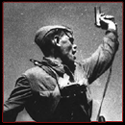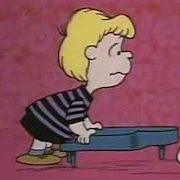|
BlazinLow305 posted:Hey guys, got a question. I read the OP but I'm still not sure but basically, how much is the absolute cheapest amount of money I can spend, and still get a functional keyboard just to learn on? For instance, you can buy a used low end guitar for like 100 bucks that is suitable for staring out, then there are things like 50 dollar First Act guitars that are absolute trash. Basically, I'm really poor and I know how to play guitar, and I regularly write my own music using guitar pro and fruity loops, including piano tracks, so really I'd just like to actually try and start learning how to play a piano/keyboard mostly for fun, but I imagine being able to play it should help my writing process too. Would a 100-150 dollar keyboard suffice, at least for starting out with things? Would it be more worth it to buy a used one? With digital pianos\keyboards its a much steeper cliff than with a guitar. Important features are either there or not. I guess you could split things into wants and needs and then look to see if anything fits in your budget. These are the main 3 things you want to be looking out for. 88 Keys - This is a full size keyboard, required if you want to head down the classical path, less required if all you want to do is play more modern things as very little uses the full range on a piano. You'd probably still want to look at 66(?) I think though. Weighted Keys - That is keys that have resistance and a well a weight behind them, it makes the whole setup heavier but if you are going to be playing it for any reasonable amount of time it will help stop you getting carpal tunnel. It also is a must if you want to every be able to also play a real piano or someone else's keyboard without sounding like rear end. Touch Responsive\touch sensitive keys - this means you play hard and fast you get a loud note, you push down gently and you get a soft note. Linked very heavily with the weighted keys point, you'll not likely find one without the other, but required if you want to add any dynamic nuance to your playing (if you don't know the answer here: you do). Again also required if you ever want to play other peoples. Thats your basic 3. Get some pedels or at least a sustain (Sostenuto) pedal and you have what in guitar terms would at the very least be a good starter instrument. Other features to look at might include. Quality of sound - Pretty simple, listen to it. There are two ways to look at this, the first is, do you like it, the second, how close to a real piano does it sound? Number of voices - How many sounds does the piano have in it? Most come with a few types of piano and some other instruments. Included here would be other configurable options, chorus/reverb etc if these interest you. How compatible is it with the outside world - Headphones, midi link ups, recording, usb stuff Polyphony - I can't remember if thats what its actually called, but how many individual notes can the piano play at once. Older cheaper pianos usually have around 64 maybe as low as 32. Newer and better are much higher. 32 might sound like a lot but if you plan on playing classical music you will start to notice it. It's not uncommon to be expected to sustain a whole phrase which may include several chords and a melody that pushes you past the number of notes a cheap piano can sound out at once. 64 is probably pretty safe, 128 to be certain unless you're getting crazy experimental (would that ever even sound good?).
|
|
|
|

|
| # ? May 21, 2024 14:14 |
|
I would be very careful about buying a cheap-rear end keyboard. I went down that path years ago and I found it to be a complete waste of time and money. Your mileage may vary of course. A lot of music stores will rent out keyboards, sometimes low end ones. Take advantage of this if you can, to see how you get on with different levels of kit.
|
|
|
|
Well now that school's out I get to practice 8 hours a day at home. I think I've finally decided that my teacher just doesn't give a poo poo, as she assigned me this piece (among others) to work on this summer: https://www.youtube.com/watch?v=p_0u9dLCRRY Czerny Toccata op.92, perf. Alberto Arbizzi After skipping or trying to skip 5 levels on my last piece, I am now taking the plunge and skipping like 100 levels apparently. Not that I'm complaining, this looks like lots of fun. Other pieces: Rondo in C, Op. 51 No. 1 LVB (much saner for my level) Beethoven Sonata No. 1 in F Minor Preludes and Fugues (Book 1: C minor, B-flat | Book 2: E Major, G major) Fantasia in D Minor, W.A. Mozart Shostakovich (whatever I want) wohoooooooo
|
|
|
|
Bought my wife a keyboard (Williams Overture 88) for her birthday, and decided I want to learn to play too. I took lessons for a few years as a small child before switching to bass and guitar as a teenager, but I haven't read music since the piano lesson years (17 years ago). The height of my early piano career was "pop goes the weasel" and the first part of "Fur Elise" which I can't stand. I know I shouldn't be frustrated that I can't play any Bach fugues after like 4 days. I can somewhat-smoothly play the prelude in c major from the WTC but that's insanely simple. I'm trying to learn another prelude from the Well Tempered Clavier (book 2? prelude 1? I don't have it in front of me.) Once the two hands start doing runs/arpeggios independently at the same time I completely fall apart. Am I supposed to memorize and play from memory, or sight-read it, or play by muscle memory and look at the music as I go along? I can play each hand's part by itself at a decent pace, I understand what's going on and appreciate how the two hands' parts interact, it's just putting the two together that turns my brain sideways and makes me sound like someone who's been trying to play for four days. When I ask my brain to control my two hands separately it's like my brain goes "nope" and shuts itself down. I absolutely love Bach, and could sit and listen to his preludes, toccatas and fugues all day, though I don't really care for his minuets just because of the style. I'm hoping at some point the two-hands-playing-different-things-at-once thing clicks so I can start playing this music! edit: also, anyone know a place that has sheet music for cool pieces in different grades/levels? Maybe I should be working my way from the bottom up... Watommi fucked around with this message at 18:38 on Jun 14, 2013 |
|
|
|
Hello piano people. I have a request and I think this is the best place to ask (I didn't want to start a thread just for this). Currently I'm taking singing lessons and would like to learn sing one of my favorite songs - "Falling Out of Love" by Aqualung, which as some really lovely piano. The problem is that I need the sheet music in order to play the song and I'm a retard when it comes to figuring it out just by listening. Unfortunately, everywhere I've looked online appears to not have it - just some other songs of his, and I even went so far as emailing the artist himself (no response). So, my request is if one of you amazing piano players have some free time and would like to figure it out and send the sheet music to me, I'll buy them platinum or something along those lines as payment. Any help is greatly, insanely appreciated.
|
|
|
|
Watommi posted:Bach and stuff. Keep at it, use a metronome and make sure you really really really know each hand separately. Break it down into smaller chunks to learn hands together. Learn each hand to something like 120% normal speed. Then start hands together in small chunks at 50% speed or even slower. Play it correct 3-5 times in a row (dont cheat yourself) then up the speed by 2-10bpm (I usually use 5 and adjust depending on how hard I find it). Then play 3-5 times correctly in a row and bump the speed up. Pretty much the best way I've found to get a handle on difficult pieces. The C major prelude if its the one I am thinking of is about grade 3 which under normal circumstance if thats about the level you play right now you should be looking to sight read around grade 1 playing pieces. As to learning pieces, I tend to find that for anything that's difficult I just end up memorising it anyway, especially if I spend a lot of time thinking about dynamics and expression. Its not a concerted effort more like you just literally play it so many times it gets stuck in there. If I come back to a piece after a long time, its more 50-50 memory and reading but after 2 or 3 runs through it, its like I never forgot. Piece suggestions. Allegro in F (33 from Nannerl Notenbuch) by Anon Scherzo from Musikalische Nebenstuden by JCF Bach Also in the prelude you already play are you doing the Mordents in bars 9-11? Probably the most difficult part of the piece and a good introduction to having hands not completely in synch.
|
|
|
|
Thanks for the advice. Either we're thinking of different preludes or the book I have doesn't have the mordents written in. Here's the one I was talking about - https://www.youtube.com/watch?v=PXMVkQ70I88 vvv I do like that one. I may start working on that one. The book 2 prelude 12 (Eb I think?) I'm working on starts out ok, but quickly goes waaaay past my ability. And the fugue is out of control. https://www.youtube.com/watch?v=Ev_0OTCwU2k Watommi fucked around with this message at 19:53 on Jun 15, 2013 |
|
|
|
Watommi posted:Thanks for the advice. Either we're thinking of different preludes or the book I have doesn't have the mordents written in. Here's the one I was talking about - https://www.youtube.com/watch?v=PXMVkQ70I88 Whoops, totally got confused there, I was thinking of the little prelude https://www.youtube.com/watch?v=2TmBTsxsVOQ although I guess add it to the piece recommendations I quite like it.
|
|
|
|
Watommi posted:I know I shouldn't be frustrated that I can't play any Bach fugues after like 4 days. Man, I'm coming up on a year of formal piano study (around 2 years total if you count scattered earlier meanderings) and fugues are still hard as poo poo. If you want to learn one, you should make sure you are following a good process. This is the one myself and my teacher use: 1) Get the open score and put in the fingerings and articulations (she does this for me.) An open score lays the Fugue out on as many staves as their are voices with each voice getting it's own stave. That way you can clearly see the independent lines. 2) Learn each voice on it's own very slowly and play it in time. Often the hands will share a voice and there will be voice crossings and shared notes, but you should try to play it exactly as written. 3) Start learning combinations of two voices super slow. Any two is fine to start. So far I've only done 3 voice fugues, so there would be 3 combinations possible (Soprano / Alto, Soprano / Bass, Alto / Bass). 4) When learning the combinations of two, practice playing one voice loud and one voice soft and vice versa. 5) When all combos are learned, put all 3 voices together super duper slow. 6) Even when you have the notes learned, the process of making it musical continues indefinitely. Learning to bring out and shape the voices, especially when they are shared by two hands or two exist in one hand, is a long process that goes on forever. A big problem for you would be where to get the fingerings. You are going to need an edited edition because trying to figure out fingerings from a urtext or barren score when you are a total beginner is gigantic recipe for disaster. quote:I absolutely love Bach, and could sit and listen to his preludes, toccatas and fugues all day, though I don't really care for his minuets just because of the style. I'm hoping at some point the two-hands-playing-different-things-at-once thing clicks so I can start playing this music! Speaking of two-hands coordination, I think before even getting into the Well-Tempered Clavier, you should learn yourself some two-part inventions! These technique pieces are also bad rear end pieces of music and were written by Bach with the keyboard learner in mind. http://www.amazon.com/Two-Part-Inve...part+inventions A wonderful edition, which includes a lengthy discussion of phrasing, dynamics, articulation, tempo, etc., and a big section explaining every ornament present.
|
|
|
|
Any method books you guys would recommend for (almost) absolute beginners? I had a keyboard and went through the first 2 of John Thompson's easiest piano course, but my keyboard broke and I lost those books. I'd like to start up with something different when I get another keyboard soon, any ideas?
|
|
|
|
I have enjoyed the Faber Piano Adventures series. It's been easy to follow and learn from, and each step in the series has supplemental books you can buy with fun songs in them. They take you up through level 5, which I think is considered early advanced for their series. For your reference: I am an adult learner, started 1.5yrs ago at the age of 26 with no prior experience on any instrument and I am currently working through 3B and the popular repertoire book for 3A/B. If you have a good teacher, they can spice up some of the supplemental songs for you and they quickly become really cool to play and listen to. Adding a chord or octave here and there makes a big difference.
|
|
|
|
Stryguy posted:I have enjoyed the Faber Piano Adventures series. It's been easy to follow and learn from, and each step in the series has supplemental books you can buy with fun songs in them. They take you up through level 5, which I think is considered early advanced for their series. I think I'm going to give the Faber Adult Piano Adventures All-In-One 2 book series a try. It sounds pretty good, thanks.
|
|
|
|
I know we have some Marc-André Hamelin fans in here, so I thought I'd give a little mention of the concert I saw him perform this evening at Wigmore Hall in London. He performed Charles Ives's "Concord Sonata", and Brahms's Piano Sonata No. 3 in F Minor. I wasn't too familiar with either piece, even though I generally love Brahms. Given the atonal and rather challenging nature of the Concord Sonata, I intended to give it a few rigorous listens before going, but never got round to it. It's a huge, massively technically demanding and often experimental piece, with some interesting aspects to it. Harmonically it's... unrestrained, to say the least. Each movement is named after a prominent figure in the transcendentalism movement. There are a number of cluster chords in the second movement which require the use of a wooden block to play. It also quotes the opening refrain from Beethoven's 5th Symphony in a number of spots. I think I would have gotten more out of it had I familiarised myself with it more beforehand, but I was at least aware to search for colour in the piece rather than melody, and all in all it was an interesting, dramatic and fun experience nonetheless, and certainly impressive from a technical standpoint. The Brahms I adored. There's not too much to say, other than it was again a very technically demanding (though this time of course somewhat more tonal) sonata, with a grand and declamatory opening and a truly beautiful second movement (perhaps the highlight for me). The third movement scherzo was lively fun, and the slow fourth segues into a dramatic fifth and final movement. I thought it was a blast, and my sister-in-law, who accompanied me, was very taken with it as well. Hamelin got a wonderful tone from the Hamburg Steinway D in the venue - he was the master of the instrument with as much totality as I've ever seen from a live pianist. It did help that we were fairly central and close (Wigmore Hall is relatively intimate venue, too), but his pedalling, his touch and his dynamic control were something to behold, from the thunderous crescendos, which never came close to muddying despite the absurd amount of notes and sustain being played into them, to the most remarkably delicate pianissimos and pianississimos. As an encore he decided to scale things back somewhat drastically, and played Mozart's K545. While I would have preferred a bit of Beethoven, it was a nice light coda to the evening, and I've never heard that particular piece played so well; he also certainly gave it a fresh feel with some tasteful rubato. A wonderful concert and an inspiring experience, perhaps more inspiring than any other piano concert I've attended. We both came out severely itching to go and do a bit of practice.
|
|
|
|
OneSizeFitsAll posted:Hamelin Live I'm big time jealous. Charles Ives wrote music that was way ahead of his time - probably way ahead of all times. I had a question about ornaments, specifically turns. I can't find a straight answer about where it belongs - before or on the beat. I've read that ornaments are supposed to follow convention and musicality as far as how they are performed, but I've also never read anything that says they should start before the beat - only that they always start on the beat. However, in one of the pieces I'm learning this summer, the turn sounding on the beat for the opening theme sounds a little ridiculous, and the recordings I have heard so far seem to start before the beat. Also, later in the piece there are turns on sixteenth notes. The piece is not that fast, maybe quarter = 60-80. However, it does seem rather challenging to play a sixteenth followed by a turn on a sixteenth (4 64th notes) followed by another sixteenth smoothly and legato, even at this speed. Also, true legato isn't even possible without pedal here because the first 64th note is a repeat of the previous note (G followed by a turn on F aka GFEF followed by G). Is it at all proper to connect the turn to the previous beat and / or the beat after to give more 'breathing room'? A similar situation came up in a Bach piece where there was no clear guidance but tying it to the previous beat is what I ended up doing. I should mention the turns I am talking about here are written over the beat. CowOnCrack fucked around with this message at 18:43 on Jun 28, 2013 |
|
|
|
Continuing a bit with the digital piano discussion at the top of the page; I've been playing with the idea of getting a digital piano to start learning how to play, and the Yamaha P105b caught my eye (also it was recommended to me in a few music stores but those guys just want to sell me stuff, so  ). ). Any opinions on it? Any other model I should be on toe lookout for that would be better? I'm in Argentina, so we don't get as many models and prices vary quite wildly, unfortunately, but I have found some Korg, Yamaha and Roland models around.
|
|
|
|
Just ordered a Doepfer LMK2+ as a Master MIDI Controller since I mostly use DAWs and have some really really high end VSTs (I work with sound). Can't wait to get it and practice my rear end off. I've gotten used to play the pianos at my museum job where I get to play on replicas of early harpsichords and Stein pianos, but also some original Pleyel pianos from the late 19th century so it'll take a bit of adjustment. The music theory teacher I had in my home country mentioned that she'd agree to give me free lessons via webcam (she's a frickin' amazing pianist too!) since she loved me so much as a student. I'm thinking of taking her up on that if I can set everything up in a way that the lessons would be worth it
|
|
|
|
So, I did my piano Grade 8 with Trinity College London last Sunday. Had to wait until I got back from holiday today to get my result (as they failed to email it to me as I requested). Anyway, I got a Distinction - just! They require 60/100 for a pass, 75 for a Merit and 87 for a Distinction, and I got 87. I'm so relieved, as I knew it was within my capabilities but I messed up one of the technical exercises quite badly and thought that had scuppered my chances. Then all the other paranoid rumination followed - did I miss some accidentals in the key signature for the sight reading? Just how good were my pieces really? How accurate were my responses in the aural? I spend half my time on holiday wondering if I'd even got a Merit. Turns out I was being hard on myself. Ideally I'd have got in the 90s, but after these past few months of hard work it feels incredible to have made it into the top category. Next up teach wants me to do the diploma qualifications! In any case I'm glad to be moving on to some nice shiny new pieces, as much as I enjoyed the ones I did for the exam. OneSizeFitsAll fucked around with this message at 19:31 on Jul 12, 2013 |
|
|
|
I'm looking for some advice on overcoming not finishing pieces properly. I hear a piece and love it, think it's the best thing ever, then learn it to a reasonable standard...the sort of standard where a non piano player would think it was good, but anyone with a small amount of knowledge would see the many shortcuts and occasional notes dropped, if that makes sense. I really need to love a piece to learn it, but rarely get it up to a high standard, when the 'honeymoon' period wears off. I often learn pieces out of my skill level which in turn makes me simplify it. I will do things like turn left hand arpeggios into easier shapes, drop an awkward note in a chord etc, if it speeds up the process without notably effecting the overall tune I will do it. So I can play a couple of the easier noturnes and preludes by chopin for example, but cheating my way out of difficult bits, I just want to get to the music. Not really sure what I can do, maybe I just have a short attention span! I play keys in a live band too, where I will just learn the basic progressions and song structures for most songs (unless theres a well known keys part) and just improvise. I get away with it but fear the day a proper teacher hears me play an actual piano piece. I'm looking for some shorter pieces that cannot be easily simplified, at an intermediate level, or some learning methods or ideas that force me to learn everything properly.
|
|
|
|
Angrycel posted:I'm looking for some shorter pieces that cannot be easily simplified, at an intermediate level, or some learning methods or ideas that force me to learn everything properly. What kind of pieces are you playing with now? You can't really fudge Bach, and you definitely can't fudge Mozart, but Mozart's a big gap in my repertoire so I can't give any recommendations there. Bach's two and three part inventions are great, and the Gavotte from his French Suite #5 in G major has a lot of variety.
|
|
|
|
Is there something intrinsically harder about intermediate-level piano playing, than say intermediate level guitar? (assuming sight reading, music theory are learnt equally?)
|
|
|
|
Southern Heel posted:Is there something intrinsically harder about intermediate-level piano playing, than say intermediate level guitar? (assuming sight reading, music theory are learnt equally?) I think it probably comes down to personal preference\ability or whatever. I find piano harder as I progress further (deeper?) into it, there is just more going on at whatever comparable level when compared to guitar. But both instruments have their unique challenges and of course it really depends on what you class as intermediate as I'd wager the style and genre of music predominantly played on a piano is very different to that on guitar.
|
|
|
|
Southern Heel posted:Is there something intrinsically harder about intermediate-level piano playing, than say intermediate level guitar? (assuming sight reading, music theory are learnt equally?) What is intermediate in piano playing? It's too broad of a label - there are too many levels. Even though supposedly I'm playing 'intermediate' repertoire right now (Bach preludes and fugues for example), in the grand scheme of things I barely pass as a beginner.
|
|
|
|
The sense I have is that at the beginning stages guitar is harder, but at the expert level piano is. When you're learning the rudiments, the completely linear pitch layout on piano is more welcoming than the rather more jagged setup on a guitar. Plus on the latter you have to learn different picking techniques, harden your fingers etc. Arguably the main difficulty with piano - co-ordinating two hands - becomes exponentially more significant the harder the repertoire, until you get to the monumental difficulty of some of the really hard pieces, with all kinds of (sometimes polyphonic) detail, articulation, dynamics, polyrhythms etc to co-ordinate between the hands. I'm very much a beginner on guitar, though, but this is how it seems to me. Some may disagree, I don't know.
|
|
|
|
shoot..it was a mistake going with 61 keys, I've been just trying to learn some pop stuff and I keep finding myself short on the low end.
|
|
|
|
Angrycel posted:I'm looking for some shorter pieces that cannot be easily simplified, at an intermediate level, or some learning methods or ideas that force me to learn everything properly. I can't speak for everyone, but the only way I ever got over the hump of learning to actually perfect a song was by preparing it for a recital or performance. Since I'm not a kid, in college, or playing professionally on any level, I've found just recording myself to be an acceptable substitute. You'd be surprised how much you're willing to learn the parts you suck at just so you can make a decent recording.
|
|
|
|
The University of Michigan music department is having a piano sale for students and alumni and I made an appointment to go because I'm planning to buy an upright piano--probably a studio upright. I don't know how to play piano though, so I don't know what I'm looking for. Their pianos are supposedly in mint shape and at a hefty discount--but is there anything I should specifically be looking for or should I just be picking one in my price range? I'm going to be using it mostly for writing and vocal exercises, but I'll probably start learning to play once I have it.
|
|
|
|
Dolphin posted:The University of Michigan music department is having a piano sale for students and alumni and I made an appointment to go because I'm planning to buy an upright piano--probably a studio upright. I don't know how to play piano though, so I don't know what I'm looking for. Their pianos are supposedly in mint shape and at a hefty discount--but is there anything I should specifically be looking for or should I just be picking one in my price range? I'm going to be using it mostly for writing and vocal exercises, but I'll probably start learning to play once I have it. Buy the tallest one you can afford/have space for. The smaller they are, the worse they sound, generally. Make sure every note plays and doesn't sound horrible - out of tune is one thing (although they really should be well tuned if they're up for sale) but clicking, buzzing, thumping noises mean they need something fixed. Could be something cheap, could be...not. Play the notes both loudly and softly. Check the pedals - there will be either two or three. The one on the left is called the soft pedal and will move the hammers closer to the strings. The one on the right is the sustain, it should make the note continue ringing after you let go of the note as long as the pedal is down. If there's a third pedal in the middle it could do any number of things, usually something similar to the left but only on the bass or only on the trebble or something like that. Look inside the piano - don't buy any piano they won't let you look inside of - but I would ask someone to open it for you instead of doing it yourself. Rusty strings is a bad sign, and any evidence of water damage. Also make sure mice haven't been chewing on the felt hammers and felt strips and peeing all over the place and having mice babies inside the piano. Dust is no big deal. You can probably look on Youtube for piano inspection videos.
|
|
|
|
Any recommendations on tutorials/videos/sites for someone just starting out? I'm basically looking for something like justinguitar.com but for pianos; I'm already taking proper lessons, but it never hurts to have some extra practise.
|
|
|
|
For piano players here's an excellent source of inspiration. András Schiff, one of the best pianists alive today, lectures on all 32 Beethoven Sonatas. This was when he was performing and recording the entire cycle. Each lecture is quite long and packed with musical and historical goodness. http://music.guardian.co.uk/classical/page/0,,1943867,00.html
|
|
|
|
Ughh. Does anyone else find that by the time you can play a piece to a decent standard you can't stand the sound of it?
|
|
|
|
|
Haha, I know that feeling. Usually for me it's less that I can't stand it, more that it doesn't mean anything to me anymore. The only reason I would pick a piece to learn to play a piece at concert level is because I really care about it, so that's awful. Not really sure what the best solution is. Mine is to never practice a piece that much, and sightread pretty much every single thing I play. This has really hurt my technique, so not sure I'd recommend it v On the other hand I sightread like a motherfucker and get paid for it, so there's that.
|
|
|
|
Most of the time I feel like I've never really gotten something to a decent standard in the first place, sigh. Maybe take a little break from it, not TOO long so you forget how to play it but long enough to not be so sick of it anymore. Maybe try listening to recordings of other people play it.
|
|
|
|
Because of this problem, I find it hard not to work on several pieces at once. For example this summer, I was working on 8 or 9 pieces simultaneously until my teacher requested that I narrow the focus down to have 3 pieces performance ready for the semester. As far as enjoying the piece, I feel like you have to constantly remind yourself why you are learning it, why you love it, and why you are totally obsessed with music. It's kind of a psych yourself in thing but I guess I'm lucky that my motivation and passion about the music stays nearly infinite if I give myself the time to really contemplate and reflect on what I'm doing. In addition to self-inspiration though I definitely couldn't do without the inspiration that comes from hearing music, discovering new music, and exploring other aspects of music besides instrumental playing (composition, theory, different styles and genres, concerts, Andras Schiff lectures, forum discussions, etc.). This is why you need breaks from practice - to rest from fatigue and to do these kinds of things. Complete musical education and total immersion - indispensable.
|
|
|
|
CowOnCrack posted:For piano players here's an excellent source of inspiration. These are really good! I've gone through teach12's lectures of Beethoven's piano sonatas, and Andras Schiff's lectures acts as a sort of mini-lectures complementing very well. He plays the piano along the lectures, with "effortless mastery", which is much appreciated.
|
|
|
|
PerOlus posted:These are really good! I love how he's like "It's just like this!" and he plays some part of a symphony or string quartet or concerto or art song or solo piece from memory to illustrate his point. I also really enjoy his down to earth folksy humor. I could seriously listen to this guy talk about Beethoven all day and I basically get that with these if I want it. The internet is just TOO good sometimes.
|
|
|
|
Feelin' pretty good today. Printed out a piano transcription of the overture to The Thieving Magpie on Monday, and I've already used it for class yesterday and today. It's still a bit rough, but the dancers seem to like it, and I know I do. I'm still largely ignorant of Opera, but even if I stick to instrumental interludes and such it looks like there's a lot of new material for me to try. Also I was thinking lately, Ernesto Nazareth is a really cool composer. He doesn't seem as well known as he should be; at least outside of South America, maybe? I'd probably describe him as Brazil's Scott Joplin, there's a lot of similarities between the two. They were pretty much contemporaries, and their pieces can be very close in structure and harmonic development. The main difference is probably that Nazareth uses a lot of cool Brazilian rhythms, and sometimes does more advanced technical and harmonic stuff. For the most part, though, if you can handle Joplin, you should be able to handle Nazareth. Anyway, here's some examples: https://www.youtube.com/watch?v=J7DPA2-8Okc https://www.youtube.com/watch?v=WAD1qC5_31w https://www.youtube.com/watch?v=55V3dOOUsCY This is a pretty small sampling; he wrote something over 200 pieces like these, which can be pretty diverse in terms of style. Haha, after checking his wikipedia, another similarity with Joplin! Was diagnosed with syphilis and died tragically in the grips of dementia 
|
|
|
|
My wife plays piano and has been wanting a piano for a long time, while we could easily buy an upright that weighs as much as a Tiger tank and get it to our house, I would like to have a keyboard to use both so I can learn piano and to eventually use it for MIDI/electronic purposes. Is there a good 88 key keyboard that is a decent synth while still having weighted keys and everything you would need to function pretty much as piano? I am not sure if that is asking a lot or not, the budget is $1k so I may be out of range. I like the Korg stuff but I don't know if there is something in that price range and full length at the same time.
|
|
|
|
Sylink posted:My wife plays piano and has been wanting a piano for a long time, while we could easily buy an upright that weighs as much as a Tiger tank and get it to our house, I would like to have a keyboard to use both so I can learn piano and to eventually use it for MIDI/electronic purposes. There are digital pianos. The better they are, the more expensive. 1K isn't a whole lot: you will get something serviceable, but not great, not by a long shot. DP's and keyboards aren't really the same instrument. One tries to mimic a 'real' piano as best as it can (with maybe some extras included like recording or different voices, because it's digital and it might as well have some of the advantages), and the other may have basically the same input method, but it doesn't try to be a piano. They usually have a lot more options for recording and mixing or using one side of the keyboard as one instrument and the other as another, or whatever they can think of. More expensive DP's won't necessarily have more options, but they will have better sound and (much) better keys that feel much more like a 'real' piano. More expensive keyboards will have a million more buttons and a billion more options. They will probably have better quality keys as well, but they won't necessarily feel more like a 'real' piano. As always, there will be extremes and things that are right in the middle as well. I think the best you can do is go to a shop and try some in person, to see if you can find something that is great for you and acceptable for your wife, or great for your wife and acceptable for you. With a (much) greater budget you could find something that would be great for both, but with 1K you'll have to choose. (I'd choose an actual piano any day of the week, but I'm biased.)
|
|
|
|
Learned this loving monster for my recital this year. It's one of the greatest piano pieces ever written, IMO. I thought it would take forever to learn the notes, but it was surprisingly straightforward given 6 or so hours of sloooooooooooooooooow practice every day. https://www.youtube.com/watch?v=54f_dvBaDd4 Played some Radiohead last year! https://www.youtube.com/watch?v=91o4QnJPzGg
|
|
|
|

|
| # ? May 21, 2024 14:14 |
|
IT BURNS posted:Learned this loving monster for my recital this year. It's one of the greatest piano pieces ever written, IMO. I thought it would take forever to learn the notes, but it was surprisingly straightforward given 6 or so hours of sloooooooooooooooooow practice every day. Wicked sick. You are awesome.
|
|
|






















